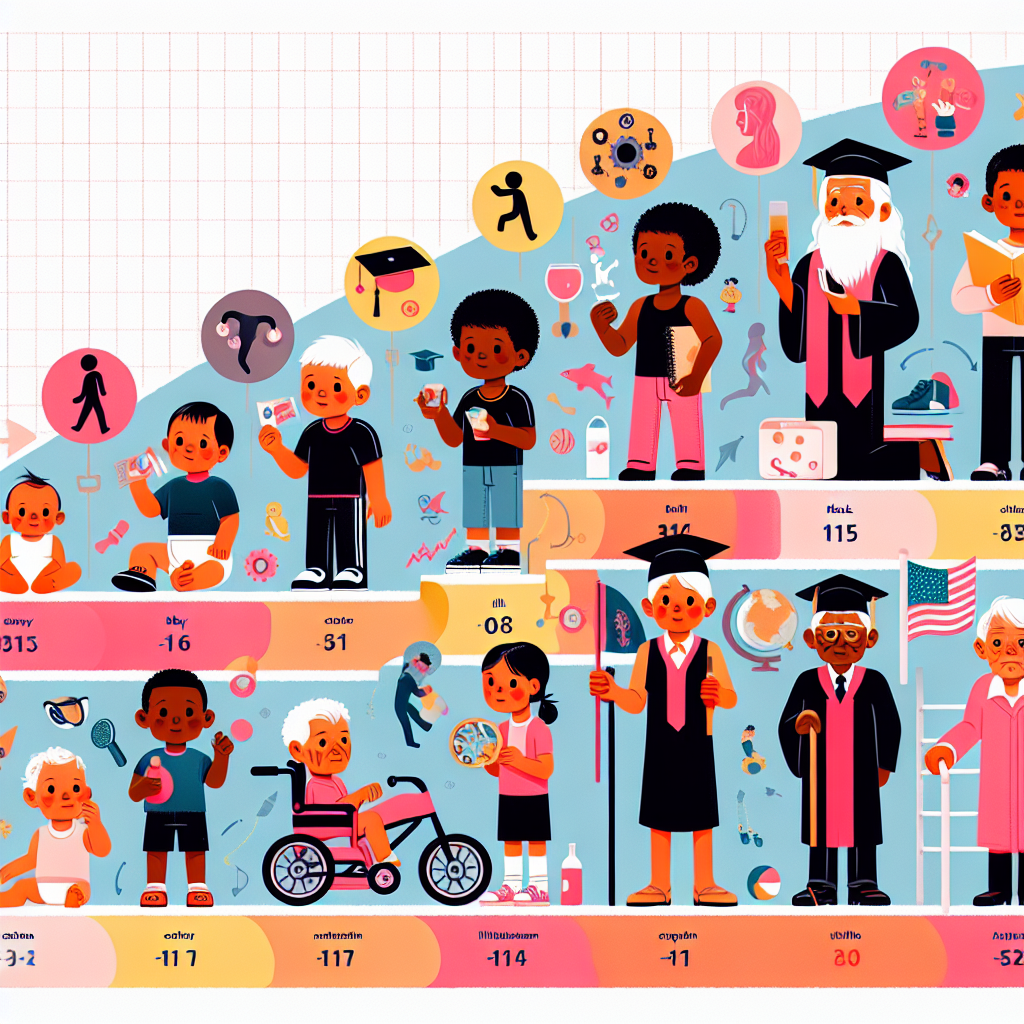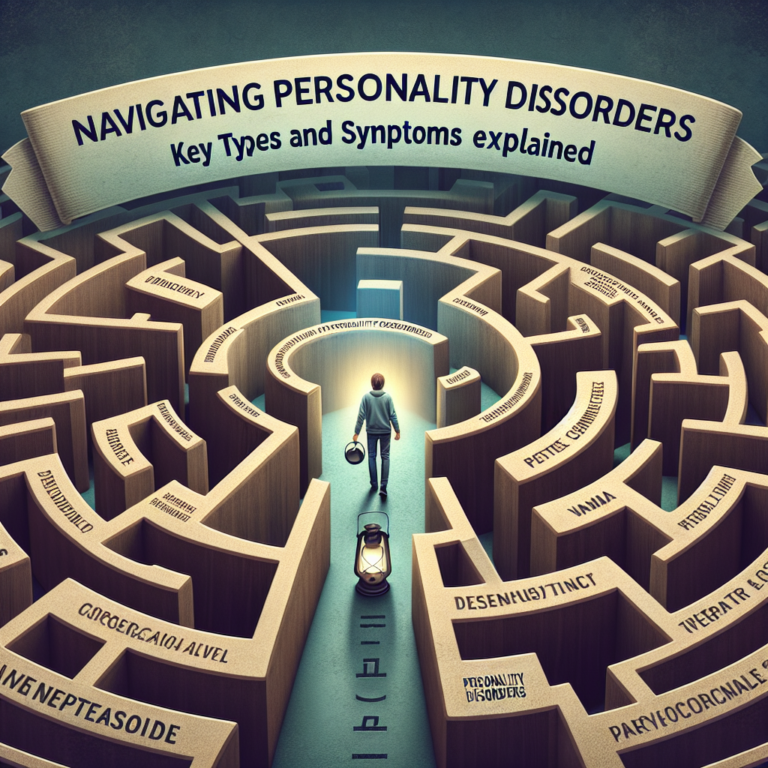
Charting Human Development: The Essential Stages in Psychological Growth for Lifelong Success
Introduction
Imagine standing at the base of a towering mountain, the summit hidden behind clouds of uncertainty. Climbing this mountain is much like our journey through life, with each stage representing a crucial milestone in our psychological growth. Charting Human Development: The Essential Stages in Psychological Growth isn’t just an academic exercise; it’s an essential map for understanding ourselves and navigating the complexities of life. This journey of growth and development is not only fundamental to individual well-being but also vital for fostering healthier communities.
Understanding these stages allows us to help others, strengthen relationships, and remain resilient in the face of life’s challenges. In this article, we will explore the essential stages of psychological growth, using real-world case studies to illustrate each point and giving you actionable insights to boost your flourishing journey through life.
The Foundations of Human Development
Understanding Developmental Psychology
Developmental psychology integrates a wide range of disciplines, including biology, psychology, sociology, and education. The primary focus is to understand how humans develop and change from infancy through old age. A key concept in charting human development: the essential stages in psychological growth is that development doesn’t stop at adolescence; it’s a lifelong process.
Major Theories of Development
Several prominent theories will guide us through these stages:
Erikson’s Psychosocial Development: This theory outlines eight stages from infancy to late adulthood, focusing on social and emotional development.
Piaget’s Cognitive Development: Piaget proposed that children move through four stages of cognitive growth, emphasizing how they learn and perceive the world.
Kohlberg’s Moral Development: This theory describes how moral reasoning develops through three levels, each comprising two stages.
- Vygotsky’s Sociocultural Theory: Vygotsky emphasized the role of social interaction and culture in cognitive development.
Each of these theories provides a unique perspective that enriches our understanding of charting human development: the essential stages in psychological growth.
Stage 1: Infancy (0-2 years) – Trust vs. Mistrust
During infancy, the primary challenge is developing trust. Caregivers who consistently respond to a child’s needs will help them feel secure and loved.
Case Study: The Effects of Secure Attachment
Research indicates that children who experience secure attachment in their infancy are more likely to have positive outcomes in later stages of life. A study with a secure base identified that children display greater emotional regulation and social competence. This significant finding underscores the importance of establishing trust in the first stage of psychological growth.
Stage 2: Early Childhood (2-6 years) – Autonomy vs. Shame and Doubt
This stage focuses on independence. Children begin to assert their own will, developing skills and confidence to navigate the world around them.
Case Study: The Power of Encouragement
A pivotal study featured preschoolers who were praised for their independent achievements. Results showed that children reinforced with positive affirmations developed higher levels of self-esteem, proving that encouragement in early childhood can foster a lifetime of confidence.
Stage 3: Middle Childhood (6-12 years) – Initiative vs. Guilt
In this stage, children start taking initiative and exploring their abilities. Their environment greatly influences this process.
The Importance of Supportive Systems
Children who participate in supportive educational systems tend to thrive. A longitudinal study highlighted that those involved in community activities develop better social skills and a stronger sense of purpose later in life. This reinforces the idea that community engagement during charting human development: the essential stages in psychological growth is crucial.
Stage 4: Adolescence (12-18 years) – Identity vs. Role Confusion
As adolescents grapple with their identities, they seek to understand their place in the world.
Case Study: The Quest for Identity
A groundbreaking study of teenagers revealed that those who engaged in varied social interactions began to solidify their identities more effectively. This testifies to the role of social experiences in enhancing identity formation, vital in charting human development: the essential stages in psychological growth.
Stage 5: Young Adulthood (18-40 years) – Intimacy vs. Isolation
During this phase, individuals focus on forming intimate relationships. Successful resolution leads to meaningful connections with others.
Analysis of Relationships
Research indicates that those who forge strong emotional connections during this stage report higher life satisfaction. This exploration of shared experiences greatly enhances the richness of our lives.
Stage 6: Middle Adulthood (40-65 years) – Generativity vs. Stagnation
In middle adulthood, individuals strive to leave a legacy through contributions to society and nurturing the next generation.
Case Study: The Impact of Mentorship
A survey of professionals in various fields found that mentoring others not only benefited the mentees but also led to increased satisfaction and fulfillment in the mentors’ lives. This reinforces the impact of generativity as a pivotal stage in charting human development: the essential stages in psychological growth.
Stage 7: Late Adulthood (65+ years) – Integrity vs. Despair
The final stage is reflective. Older adults assess their lives, achieving feelings of fulfillment or despair.
Importance of Life Reflection
Those who engage in life review and reminiscence therapy often report improved well-being in their later years. Studies reveal that reflecting on life experiences fosters a sense of purpose and allows individuals to find closure, emphasizing that the final stage in charting human development: the essential stages in psychological growth is rich with potential for peace.
Conclusion
In understanding charting human development: the essential stages in psychological growth, we equip ourselves with the necessary tools to navigate the complexities of life. This knowledge enables us to be more compassionate individuals and educators, helping to foster healthier communities. Each stage, from infancy through late adulthood, brings unique challenges and learnings that add layers of depth to the human experience.
As you reflect on your developmental journey, consider how these stages resonate within your life. Are there places where you feel stuck or unresolved? Recognize the possibilities—your past does not dictate your future. Allow this understanding to delve deeper into your actionable insights, guiding you toward a more fulfilling life.
FAQs
1. What is the most influential stage of psychological growth?
While all stages are important, many argue that early stages, particularly infancy and early childhood, are crucial due to their impact on subsequent development.
2. Can individuals regress in psychological development?
Yes, stressful events can lead to regression. Understanding charting human development: the essential stages in psychological growth can help recognize and address these setbacks.
3. How can parents support their child’s development?
Providing a secure and loving environment, enhancing social interactions, and encouraging exploration are vital in fostering healthy psychological growth.
4. What resources can help understand these stages better?
Books by Erik Erikson and Jean Piaget, as well as resources from mental health professionals, provide valuable insights into human development stages.
5. How does culture influence psychological development?
Cultural context deeply affects how individuals experience and navigate developmental stages, shaping identity, values, and social interactions.
By embracing the knowledge found in charting human development: the essential stages in psychological growth, individuals can enhance their understanding of themselves and others, leading to more compassionate communities and flourished lives.











